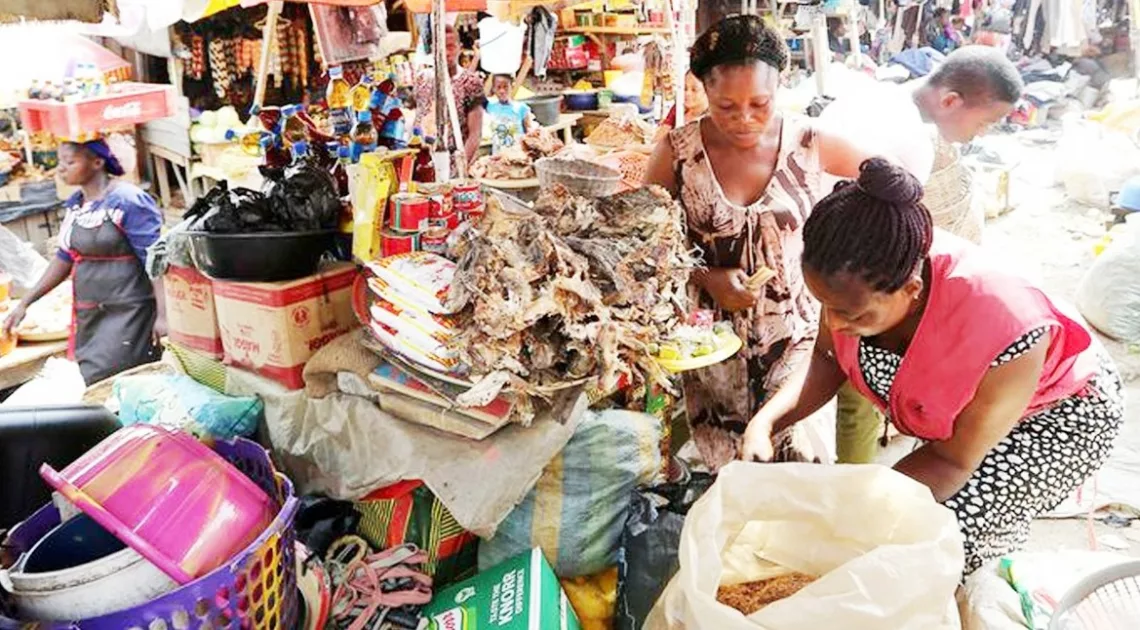Christmas is that time of the year for merry-making, giving and receiving gifts. But what is celebratory about December 25, in acute lack of food and drinks, and gifts?
With the avalanche of economic crises bedeviling the country, 2022 Christmas may prove to be one of the worst experienced by Nigerians for decades.
Climate change has for a long and steady time affected agricultural productivity. Government policies have been inclement, with poor budgetary allocation for the sector, at an average 3.5 per cent on average.
Farmer/herder crisis in the major agriculture belt of the country had hampered productivity to a point where many farming communities depend on scarce supplies from other regions of the country to survive, with tens of thousands of others ensconced in refugee camps.
Banditry had created a situation where other farmers who dare to farm have committed to paying taxes and levies to criminals just to hang on.
COVID-19 disrupted supply chains, including the production and distribution of fertilisers, a major input of agricultural productivity.
In the midst of all of this, floods have reduced Nigeria’s expected harvest come next harvest season. More than a million acres of Nigerian farmland have been destroyed by the worst flooding to hit the country in a decade, the United Nations estimates, and a quarter of a million remain submerged.
Nasarawa State, Olam’s $20 million agricultural investment covering 4,400 hectares of rice farm in the Rukubi Doma area was heavily affected.
Considering the fact that Nigeria’s planting season is in the first quarter of the year, and harvest season is usually the last quarter, or the first quarter of the following year, a million plus acres of farmland destroyed spells doom for farmers and hunger for the populace.
Prior to the ongoing flood disaster, about 19.4 million people were projected to face food insecurity across Nigeria between June and August 2022 due to causes other than flood. That was based on a report by the United Nations Food and Agriculture Organisation (FAO).
Already, the average cost of making a pot of jollof rice for a family of five increased from an average price of N9,220 in June to N9,917 in September, a 7.6 per cent increase. Across the 13 markets surveyed, Wuse II recorded the highest cost of making a pot of jollof rice at N13,150, while Onitsha had the cheapest price at N8,510. This is according to SBM Intel.
Jollof rice is the most commonly cooked food in times of celebration in Nigeria. As of September 2022, the price of a bag of rice rose to N40,000 for a 50-kilogram bag of rice.
Tomatoes, a major ingredient in making jollof rice is being submerged in more than one million acres of farmlands. Tomatoes cannot survive submerged for more than a day.
As the prices of food are rising, many Nigerians are losing jobs. The market for employment is getting thinner by the day. And wages are stagnant, in most cases, losing value due to inflation.
Nationally, the price of eggs has risen on average from N1,200 in January to N2,450 in September. The commodity, which many had started using as alternative for a good protein diet is also getting out of the reach of the poor.
The chief executive of Archer Investments Limited, Dr. Samuel Amuchie told NATIONAL ECONOMY that the flood situation bodes hunger for Nigeria. Amuchie said the federal government is shying away from reality by playing down the consequences of the flood.
Amuchie said the federal government should explore the possibility of sending an SOS call to development partners as this is a natural disaster situation, which no country is immune to.
He added that Nigeria’s food reserves are not adequate to take care of such emergency situation for more than one week.
Agriculture consultant, Dr. Samson Oni, said the current state Nigeria finds herself in calls for reality check. He said the rising prices of food stuff is clear indication that there is food shortage in the country. Oni stressed that by the time the waters recede the reality will set in how much the floods have affected food supplies.
He called on the federal government to open the borders to allow importation of food, at least for the short term.
Christmas is barely two months from now. NiMet, Nigeria’s meteorological institution has said the waters will recede in November. With so many people displaced, it may take months for affected Nigerians to get their lives back together.
For many, this will be their worst Christmas.





